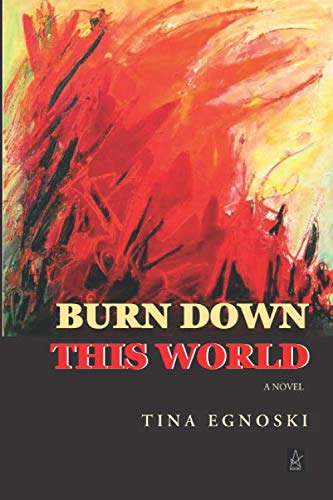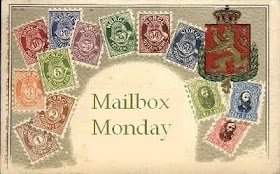Anthony Burgess made a list of the Best 99 Novels in English. At least, they were the Best 99 Novels in English between 1939 and 1984, according to him.
Burgess was entitled to offer an opinion with some authority. Burgess was a British author who wrote 33 novels as well as poetry, biography, criticism, and other works. He was also a journalist, linguist, and music composer. He died in 1993. He is best known for his dystopian satire, A Clockwork Orange, an excellent book I put off reading for too long because the movie was so disturbing.
In 1984, Burgess published a book he called 99 Novels: The Best in English Since 1939 (reviewed here). The time span of 1939 to 1984 is described as "a period that encompasses the start of a world war and ends with the nonfulfillment of Orwell's nightmare."
His book included mini-reviews of the 99 novels (some are sets or series), which he chose on the basis of personal preference. Burgess described his process and his choices like this:
In my time, I have read a lot of novels in the way of duty; I have read a great number for pleasure as well. The 99 novels I have chosen, I have chosen with some, though not with total, confidence. I have concentrated on works which have brought something new – in technique or view of the world – to the form.
If there is a great deal of known excellence not represented here, that is because 99 is a comparatively low number. The reader can decide on his own hundredth. He may even choose one of my own novels.
The Anthony Burgess list of 99 Best Novels and Erica Jong's list of Top 20th Century Novels by Women are my go to lists when I'm looking for something good to read. There is some crossover with other Must Read lists, but a lot of originality. There are many authors I tried and books I read only because they were on the Anthony Burgess list and they are now all-time favorites.
Also, I would include Burgess's Earthly Powers book as the 100th. I think it deserves a spot on a top 100 midcentury novel list.
Here is the list, in the same chronological order by publication date that Burgess lists them in his book, with notes if I've read the book, it is on my TBR shelf, or if it is available in an audiobook from my library. So far, I've finished 53 of the books on this list. There are a few I will most likely never read.
Party Going, Henry Green FINISHED
After Many a Summer Dies the Swan, Aldous Huxley TBR SHELF
Finnegans Wake, James Joyce (discussed here) FINISHED
At Swim-Two-Birds, Flann O'Brien TBR SHELF
The Power and the Glory, Graham Greene FINISHED
For Whom the Bell Tolls, Ernest Hemingway FINISHED
Strangers and Brothers, C. P. Snow (an 11-novel series George Passant, reviewed here FINISHED; A Time of Hope, reviewed here FINISHED; The Consciousness of the Rich FINISHED; The Light and the Dark FINISHED; The Masters FINISHED; The New Men TBR SHELF; Homecomings TBR SHELF; The Affair TBR SHELF; Corridors of Power TBR SHELF; The Sleep of Reason TBR SHELF; Last Things TBR SHELF)
The Aerodrome, Rex Warner TBR SHELF
The Horse's Mouth, Joyce Cary TBR SHELF
The Razor's Edge, Somerset Maugham (reviewed here) FINISHED
Brideshead Revisited, Evelyn Waugh FINISHED
Titus Groan, Mervyn Peake (reviewed here) FINISHED
The Victim, Saul Bellow FINISHED
Under the Volcano, Malcolm Lowry FINISHED
The Heart of the Matter, Graham Greene FINISHED
Ape and Essence, Aldous Huxley FINISHED
The Naked and the Dead, Norman Mailer (reviewed here) FINISHED
No Highway, Nevil Shute
The Heat of the Day, Elizabeth Bowen FINISHED
Nineteen Eighty-Four, George Orwell FINISHED
The Body, William Sansom
Scenes from Provincial Life, William Cooper
The Disenchanted, Budd Schulberg
A Dance to the Music of Time, Anthony Powell (a 12-novel series; my desert island pick; discussed here) FINISHED
The Catcher in the Rye, J. D. Salinger FINISHED
A Chronicle of Ancient Sunlight, Henry Williamson (a 15-book series, not easy to find, and only gets Burgess's halfhearted endorsement)
The Caine Mutiny, Herman Wouk TBR SHELF
Invisible Man, Ralph Ellison FINISHED
The Old Man and the Sea, Ernest Hemingway FINISHED
The Groves of Academe, Mary McCarthy (one of my favorite books ever; reviewed here) FINISHED
Wise Blood, Flannery O'Connor FINISHED
Sword of Honour, Evelyn Waugh (a trilogy) TBR SHELF
The Long Goodbye, Raymond Chandler TBR SHELF
Lucky Jim, Kingsley Amis (I love this one) FINISHED TWICE
Room at the Top, John Braine FINISHED
The Alexandria Quartet, Lawrence Durrell FINISHED
The London Novels, Colin MacInnes (a trilogy) TBR SHELF
The Assistant, Bernard Malamud (reviewed here) FINISHED
The Bell, Iris Murdoch FINISHED
Saturday Night and Sunday Morning, Alan Sillitoe (I was supposed to read it in college but was hungover - the irony) TBR SHELF
The Once and Future King, T. H. White TBR SHELF
The Mansion, William Faulkner
Goldfinger, Ian Fleming FINISHED
Facial Justice, L. P. Hartley TBR SHELF
The Balkans Trilogy, Olivia Manning TBR SHELF
The Mighty and Their Fall, Ivy Compton-Burnett
Catch-22, Joseph Heller FINISHED
The Fox in the Attic, Richard Hughes TBR SHELF
Riders in the Chariot, Patrick White TBR SHELF
The Old Men at the Zoo, Angus Wilson (my favorite unknown novel) FINISHED
Another Country, James Baldwin ON OVERDRIVE
Error of Judgment, Pamela Hansford Johnson TBR SHELF
Island, Aldous Huxley TBR SHELF
The Golden Notebook, Doris Lessing FINISHED
Pale Fire, Vladimir Nabokov (brilliant) FINISHED
The Girls of Slender Means, Muriel Spark (my favorite Spark) FINISHED
The Spire, William Golding FINISHED
Heartland, Wilson Harris TBR SHELF
A Single Man, Christopher Isherwood (reviewed here) FINISHED
Defense, Vladimir Nabokov (also called The Luzhin Defense)
Late Call, Angus Wilson TBR SHELF
The Lockwood Concern, John O'Hara TBR SHELF
The Mandelbaum Gate, Muriel Spark (reviewed here) FINISHED
A Man of the People, Chinua Achebe
The Anti-Death League, Kingsley Amis (reviewed here) FINISHED
Giles Goat-Boy, John Barth TBR SHELF
The Late Bourgeois World, Nadine Gordimer
The Last Gentleman, Walker Percy FINISHED
The Vendor of Sweets, R. K. Narayan TBR SHELF
Image Men, J. B. Priestley (two volumes)
Cocksure, Mordecai Richler TBR SHELF
Pavane, Keith Roberts TBR SHELF
The French Lieutenant's Woman, John Fowles FINISHED
Portnoy's Complaint, Philip Roth FINISHED
Bomber, Len Deighton
Sweet Dreams, Michael Frayn TBR SHELF
Gravity's Rainbow, Thomas Pynchon ON OVERDRIVE
Humboldt's Gift, Saul Bellow FINISHED
The History Man, Malcolm Bradbury FINISHED
The Doctor's Wife, Brian Moore TBR SHELF
Falstaff, Robert Nye TBR SHELF
How to Save Your Own Life, Erica Jong (reviewed here; I love all the Isadora Wing books) FINISHED
Farewell Companions, James Plunkett TBR SHELF
Staying On, Paul Scott (Booker Prize winner) FINISHED
The Coup, John Updike TBR SHELF
The Unlimited Dream Company, J. G. Ballard
Dubin's Lives, Bernard Malamud TBR SHELF
A Bend in the River, V. S. Naipaul FINISHED
Sophie's Choice, William Stryon (reviewed here) FINISHED
Life in the West, Brian Aldiss
Riddley Walker, Russell Hoban TBR SHELF
How Far Can You Go?, David Lodge (reviewed here) (one of my favorites) FINISHED
A Confederacy of Dunces, John Kennedy Toole FINISHED
Lanark, Alasdair Gray
Darconville's Cat, Alexander Theroux
The Mosquito Coast, Paul Theroux FINISHED
Creation, Gore Vidal
The Rebel Angels, Robertson Davies (reviewed here; my love of Davies started with this one) FINISHED
Ancient Evenings, Norman Mailer TBR SHELF
NOTES
Updated October 26, 2023.



























